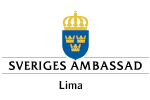 I congratulate the Property Rights Alliance on its 10th edition of the International Property Rights index (IPRI).Property rights are crucial in establishing a climate conducive to economic prosperity and freedom within a country. As such, the developed nations around the world have found the importance of property rights and ensured their protection.
I congratulate the Property Rights Alliance on its 10th edition of the International Property Rights index (IPRI).Property rights are crucial in establishing a climate conducive to economic prosperity and freedom within a country. As such, the developed nations around the world have found the importance of property rights and ensured their protection.
Therefore, Western countries top the list of scores for strong property rights protections. Conversely, countries that have weak property rights also struggle to develop strong, innovative economic markets.Currently, countries in the Middle East and Africa struggle the most in securing property rights, affecting a population of over 1.4 billion. It is our hope that the following index, statistical correlations, case studies, and our history of success will provide these countries, that represent such a large portion of the world’s people, a path toward improving their property rights and with it their economic and personal opportunities.
Since its inception, the IPRI has proven the impact of property rights on economies, and this year is no different. Sary Levy Carciente, the Hernando De Soto Fellow, has added upon her research from the 2015 index to add four more countries, Benin, Ecuador, Bosnia & Herzegovina and Liberia. Combined with the countries that have been included in past editions, the 2016 IPRI contains detailed breakdowns and interpretations of 128 countries.Just as four countries were added, a handful of countries no longer were able to provide the necessary information to be researched and included in the index.
Since the index has the ability to show countries their shortcomings in creating an atmosphere of freedom and success, I urge all countries not included to increase their transparency so that they can be included in future editions. Furthermore, the presence of data itself can be a strong indicator of a country moving in the right direction with regards to property rights.
As the index has now come a full decade since its beginning, continued trends and data prove the the structure of the index is proper and legitimate. Maintaining a consistent structure for the index allows countries to monitor their growth and track progress. Furthermore, additional years of data will give observers more information to spot the trends and habits of states in consistently providing property rights.
The index measures the three main components of a sound property rights system: the Legal and Political Environment (LP), Physical Property Rights (PPR), and Intellectual Property Rights (IPR). Each of these three components that make up the International Property Rights Index is further broken down into subcomponents. The LP has four subcomponents: Judicial Independence, Rule of Law, Political Stability, and Control of Corruption. The PPR has three subcomponents: the Protection of Physical Property Rights, Registration of Property and the Ease of Access to Loans. The final component, IPR, also has three subcomponents: the Protection of Intellectual Property Rights, Patent Protection, and Copyright Protection.
As innovation and creativity abound in markets around the world, the current global the current globalized economy requires strong property rights. The study brings positive news as the overall average score of the countries included in the index has increased by .1 over the last year while each individual component also increased. The LP subcomponent moved from 4.99 to 5.13, the PPR from 5.77 to 5.87, and the IPR from 5.14 to 5.33. This news of increased property protections is welcome news! I look forward to even more growth in the next year. Furthermore, the index will be crucial to countries around the globe to work towards improving their protections and thus allowing for a prosperous and free country.
Read the introduction and see the 2016 International Property Rights Index


